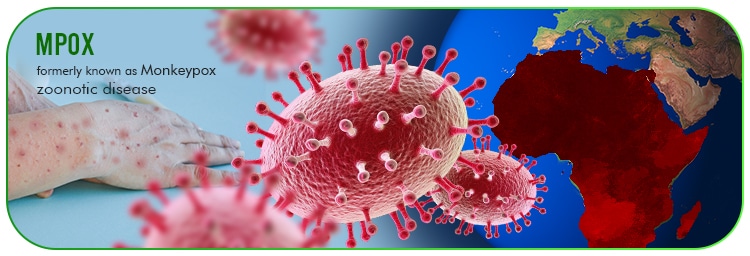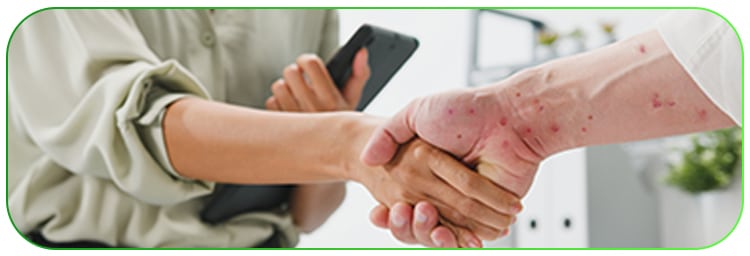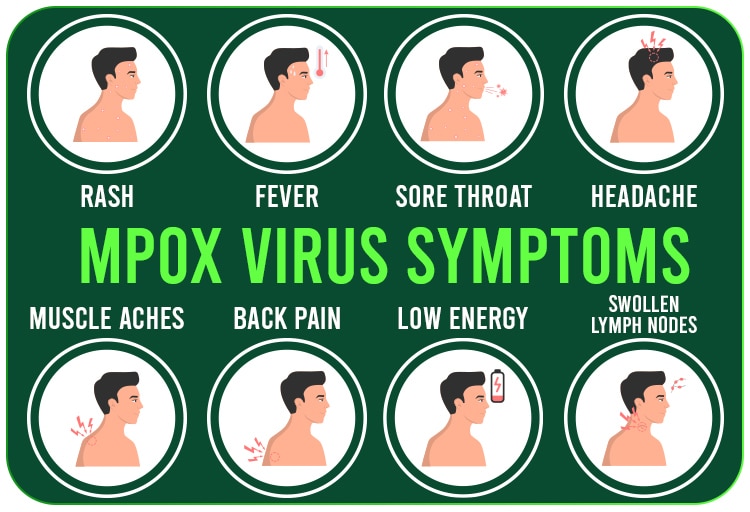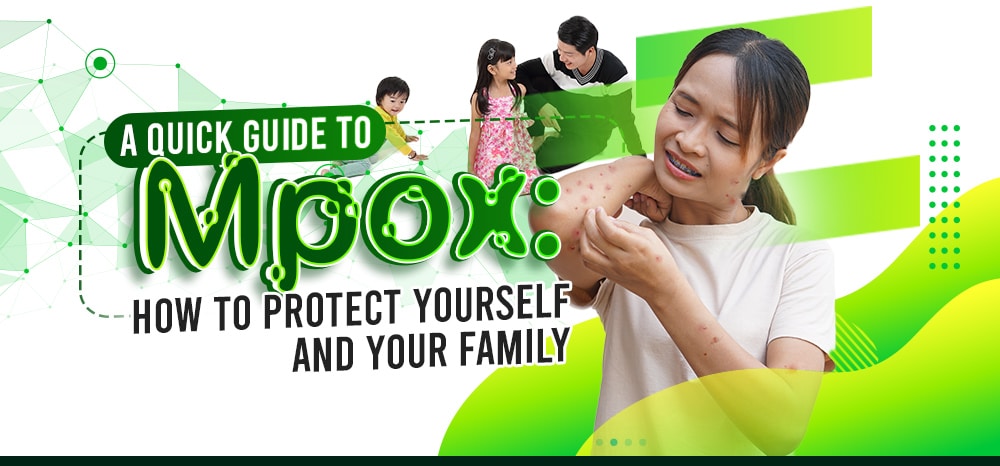The recent whooping cough outbreak isn’t the only major health concern for the country this year.
Last week, the Philippines logged its first case of Mpox this year, mere days after the World Health Organization (WHO) declared a global health emergency.
Officials detected two more cases in Metro Manila last Monday, bringing the total Mpoxcase count in the Philippines to 12 since July 2022.
Fortunately, by learning more about this disease, you can better protect yourself and your family from Mpox.
Here’s everything you need to know about Mpox and some prevention tips for it.

What is Mpox?
Mpox, formerly known as Monkeypox, is a disease caused by the monkeypox virus, a species of the genus Orthopoxvirus. This virus is part of the same family as the one that causes smallpox.
There are two distinct clades of Mpox: Clade I (with subclades Ia and Ib) and Clade II (with subclades IIa and IIb). Clade I originated from Central Africa, while Clade II came from West Africa.
Mpox is a zoonotic disease, which means it can spread from animals to people.
Additionally, although it was previously called Monkeypox, the virus can also be found in small rodents and other mammals.
Despite being endemic in Africa, a global outbreak of Mpox occurred in 2022-2023 caused by the less severe clade IIb strain.
That said, as of August 2024, the Clade Ib has also been detected beyond Africa.

How Does Mpox Spread?
Mpox is typically transmitted via direct contact with someone who has it.
This includes skin-to-skin (i.e. touching) and mouth-to-mouth (i.e. kissing) or mouth-to-skin contact.
Although Mpox can be transmitted via respiratory droplets, it requires prolonged face-to-face contact, unlike Covid-19.
In addition, Mpox can also be transmitted during pregnancy, which makes it especially dangerous to both the infant and mother.
Aside from direct physical contact, you can also contract Mpox from contaminated objects or infected animals. In some cases, you can even get Mpox from eating undercooked, contaminated meat.

Mpox Virus Symptoms
Mpox signs and symptoms usually appear within a week but can manifest 1-21 days after exposure. These typically last 2-4 weeks but can last longer if the infected has a weakened immune system.
Common Mpox symptoms include:
- Rash,
- Fever,
- Sore throat,
- Headache,
- Muscle aches,
- Back pain,
- Low energy, and
- Swollen lymph nodes.
For some, their first Mpox symptom is usually a rash. For others it can be fevers, muscle aches, or a sore throat.
The Mpox rash usually begins in the face and slowly spreads over the body, extending to one’s palms and soles. The rash can also start on other parts of the body where infectious contact was made, which can include the genitals.
It starts as a flat sore, which develops into a liquid-filled blister that may be itchy and painful. As the rash heals, the lesions dry up, crust over, and fall off.
People with Mpox can still contaminate others until all their sores have healed and a new skin layer has formed.

Is There a Cure for Mpox?
There are currently no approved antiviral treatments for Mpox.
Fortunately, it usually is a self-limited disease, which means it gets better without treatment, with its symptoms typically lasting from 2 to 4 weeks.
Following diagnosis, your doctor will monitor your condition and try to relieve your symptoms, prevent dehydration, and provide antibiotics to treat secondary bacterial infections.

How to Protect Yourself and Your Family From Mpox
As they say: “Prevention is better than cure.”
Here are some ways you can protect yourself and your family from Mpox:
Always Practice Good Hygiene
Washing your hands with soap and water always helps – especially after touching your pets or public surfaces like handrails or elevator buttons.
If you can’t wash your hands, you can use a hand sanitizer with alcohol disinfectant.
Limit Your Exposure to the Virus
You can further minimize your risk of getting Mpox by avoiding areas with known cases.
If you have to go out, always wear a mask and avoid sharing personal items with others.
Remember, even though it’s not an airborne virus, you can still get infected if you have direct physical contact with an infected person.
You can also avoid further exposure by working in an online work from home setup, limiting your need to commute and your exposure to others.
Vaccinate Yourself and Your Loved Ones
Currently, Mpox vaccines are only recommended for people at risk for Mpox.
These include healthcare workers or those living near an area with a known case.
Thankfully, smallpox vaccines also offer protection against Mpox.
Before getting a vaccine, however, consult with your doctor first.

Keeping Yourself and Your Family Safe From Mpox
First, Covid. Then whooping cough. Now Mpox.
It’s hard not to worry about your family’s safety with all these diseases appearing in such short order.
However, like the previous two, the best way to protect yourself and your family from Mpox is by understanding its risks and practicing preventive measures.
With that in mind, are you looking for work from home so you don’t have to risk exposure to make a living? Remote Staff is here to help.
Our jobs list contains plenty of positions for you to choose from.
These range from virtual assistant jobs and online transcription jobs to online writing jobs and online design jobs.
Ready to start your online career? Sign up here. Good luck, and stay safe!

